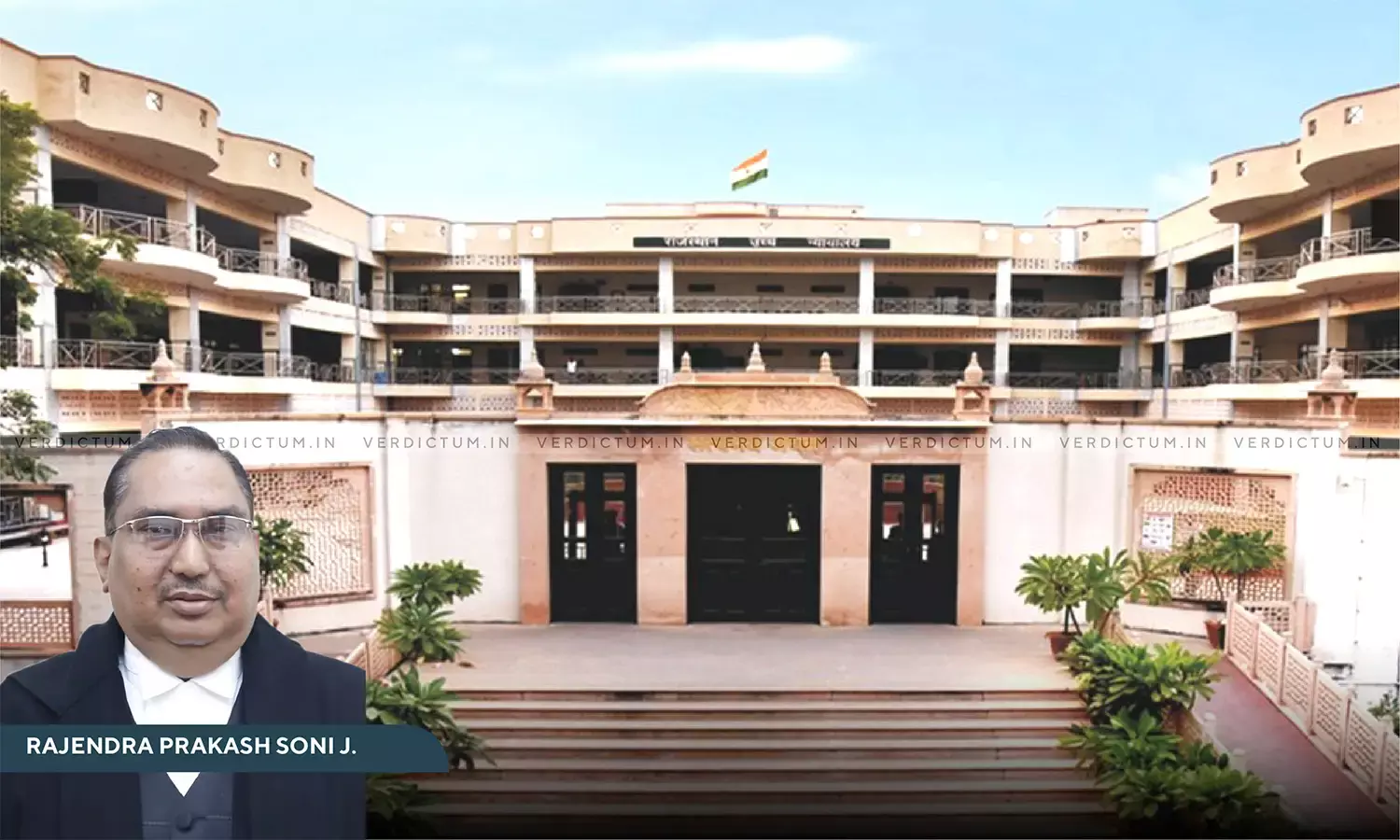Standing Orders On Seizure Of Narcotic Drugs Must Be Strictly Followed By Probe Agencies; Non-Compliance May Naturally Invoke A Reasonable Doubt: Rajasthan HC
The Rajasthan High Court ruled that standing orders on narcotic drug seizures must be strictly adhered to by probe agencies.
The Court said that as the possession of any narcotic drugs or psychotropic substance by itself is made punishable under the act, the seizure of the article from the accused is of vital importance and if there is any violation of the Standing Orders/guidelines, Courts would take a serious view.
The Court was hearing a second application for bail under Section 439 Cr.P.C. after the applicant was arrested for the offence punishable under Section 8 read with Section 18(B) of the Narcotic Drugs and Psychotropic Substances Act, 1985.
The bench of Justice Rajendra Prakash Soni observed, “…procedures prescribed in the Standing Orders are based on certain logic therefore, Standing Orders on manner of seizure of narcotics drugs issued by the Narcotics Control Bureau must be observed by the probe agencies and they cannot be rendered optional for compliance or else it would be a “worthless piece of paper.”
Advocate Navneet Poonia appeared for the Appellant and Special PP K.S. Nahar appeared for the Respondent.
Brief Facts-
Based on secret information, the Petitioner was found in possession of 4.400 kgs of contraband opium. The petitioner was detained along with the contraband and taken to the Narcotics Office for further seizure and arrest actions.
The Court mentioned the Supreme Court decision in Khet Singh vs. Union of India AIR 2002 (S.C.) 1450 where the SC observed, “If the search and seizure was in complete defiance of the law and procedure and there was any possibility of the evidence collected likely to have been tampered with or interpolated during the course of such search or seizure, then, it could be said that the evidence is not liable to be admissible in evidence.”
The Court noted that in the present case, the directions contained in the Standing Instructions issued by the Narcotics Control Bureau were not prima facie complied with when the alleged contraband had remained in the custody of the preventive squad for about 24 hours without any legal action. According to the Court, the lack of compliance with these provisions necessarily imports an element of reasonable doubt.
Relying on the decision of the Supreme Court in the case of Kuldeep Singh v. State of Punjab, reported in AIR 2011 (SC) Suppl. 787 the Court said that the manner of seizure in the present case provides a sufficient ground for the appellant to be released on bail.
Accordingly, the Court allowed the bail application.
Cause Title: Kuka Ram v. State of Rajasthan
Appearance:
Appellant: Adv. Navneet Poonia
Respondent: Special PP K.S. Nahar and Adv. Gopal Singh












